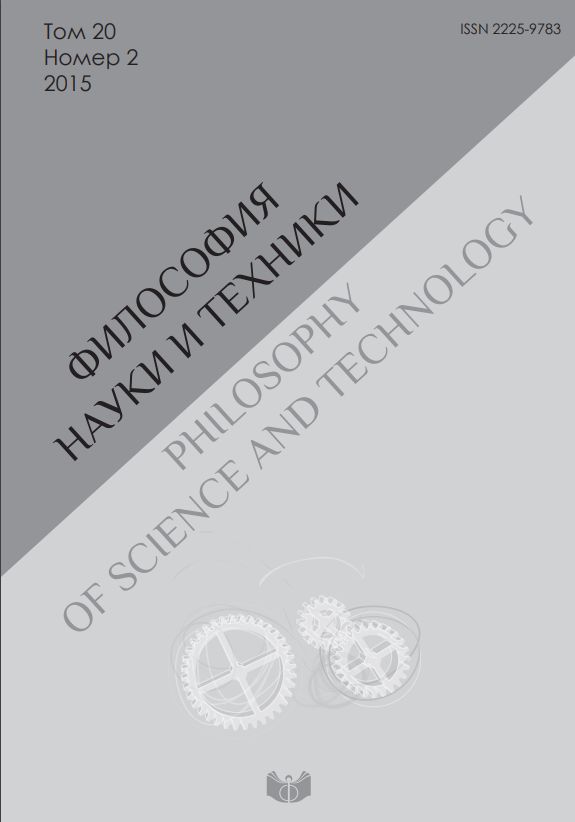Paul Natorp: The Development of Kantian Epistemological Model as a Response to the Challenges of Non-classical Science
Keywords:
Paul Natorp, Neo-Kantianism, Marburg School, Immanuel Kant, non-classical science, relativity theoryAbstract
The present research article is devoted to the Marburg project of philosophy, particularly to P. Natorp who tried to find a place for philosophy in the time of rapid growth of scientific knowledge. The German philosopher focused on the creating of a new epistemological model which would be able to combine the worlds of science and philosophy in one system. This approach raised doubts among the philosophers, who reproached Natorp for the loss of the «spirit of philosophy». In this paper we would like to show that the common theory of cognition is not trying to simplify or destroy original philosophy, but it implements into the practice the global task of finding the foundations of human culture which was discovered in the principles of Subject’s activity. The new concept was formulated on the basis of Kant’s critical philosophy which was constructed in accordance with dominant ideologems of the 18-th century and demonstrated good coherence with Newton’s science. One of them, «sensibility», has formed the basis of religious, scientific, philosophic systems of that time, but at the end of the 19th – beginning of 20th century it was not able to support the changing culture frames, which made Natorp look for the new bases of cultural universe not in the naïve notion of «reality», but in the principles of thinking. Although the connection between kantianism and natural science is not the only possible way of analysis, nevertheless we cannot deny that the «interest in science» is one of the central motives of philosophy for Kant and for Natorp. In the present article we are focused on the investigation of how the changing of scientific reality corresponds with a changing of Neo-Kantian epistemological system at the same time bearing in mind that this relation is a partial task of the kantian thought claming to versatility and fullness.











